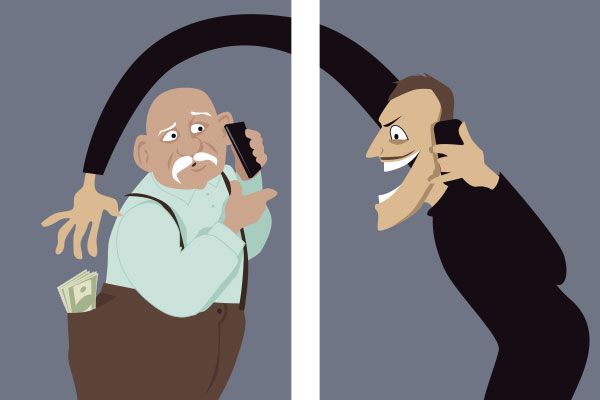5 Things to Remember That Can Help Our Senior Loved Ones Avoid Fraud
A senior caregiver’s heart stops when they hear the words “scam” or “scammer.” Each year, dishonest people steal millions of dollars from the innocent and their main target is increasingly the elderly. As caregivers, we need to educate both ourselves and our loved ones so we can help them avoid financial fraud. Sit down and talk with them about these five things that can help them stay one step ahead of the scam artists out there.
- If You Don’t Recognize the Phone Number, Don’t Answer the Call
It’s simple. If a caller doesn’t want to show their caller ID information, then they’re probably up to something. Be especially wary with this one, because scam artists are infamous for using fake phone numbers with the intended victim’s area code. - Google It
If your loved one slipped up by answering a call from an unknown caller, hopefully they just told the caller “no thank you” and hung up. Let them know that if this happens, they need to write down as much information as they can before hanging up. Then show them how to use the power of Google to search terms like “IRS scam” or “Medicare call.” They’ll be able to see if others have reported similar problem calls. - Kill the Pop-Ups and Delete Emails from Unknown Sources
The unsolicited pop-up or email asking the computer user to click on a link is usually dangerous. Scammers know that seniors are the most likely ones to take the bait. Counsel your senior loved ones on how to close a pop-up ad and stress the importance of deleting unsolicited emails. You can even go a step further and disable pop-ups altogether for them. It’s also a good idea to make sure they have the latest anti-malware, spyware and virus protection software installed. You can also set up remote control software like TeamViewer on both of your computers so you can look at any questionable pop-ups or emails your senior loved one encounters. - Get Them to Talk to Someone First
There’s an old saying that “if it seems too good to be true, then it probably is.” Scammers will try to push people into making a quick decision, especially when it comes to the elderly. Reinforce with your loved one that it is okay to take their time when making a decision that involves their money and their personal information. If they suspect that someone is trying to defraud them, they should contact you to talk it over with first. A reputable person will be fully supportive of anyone making an informed decision. - Stay on Top of Emerging Scams
Register with the FTC to get the latest information and tips about scams. Registration is free and you’ll be able to opt-out at any time.
We hope your senior loved one never falls victim to fraud. Following these five tips will help. If you do happen to get involved in a fraudulent situation, however, report it promptly to help officials find the scammers and bring them to justice.












